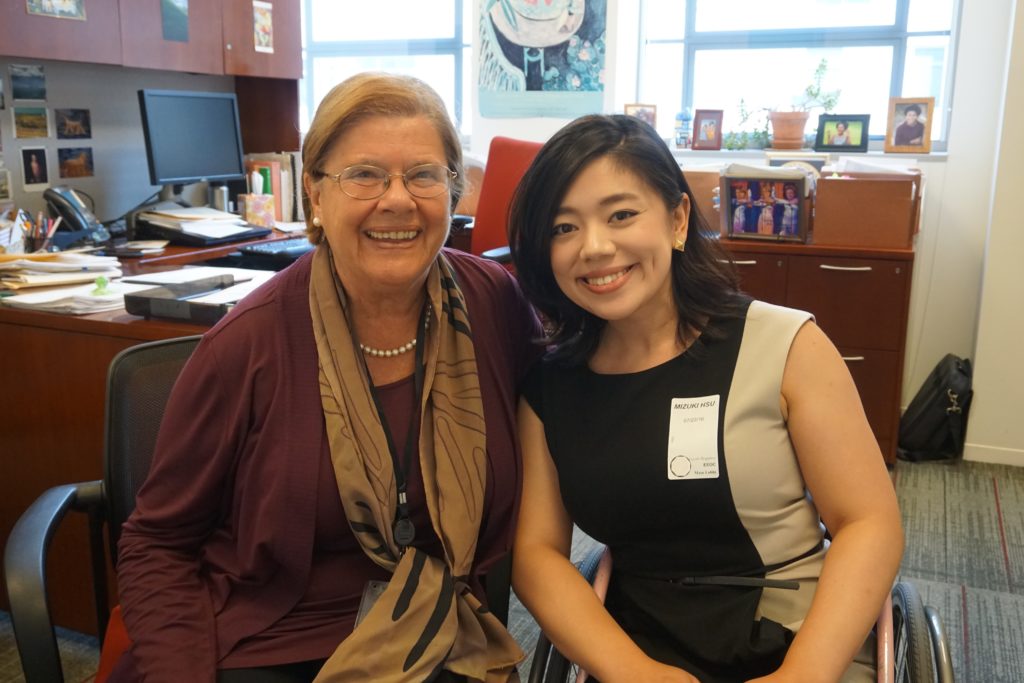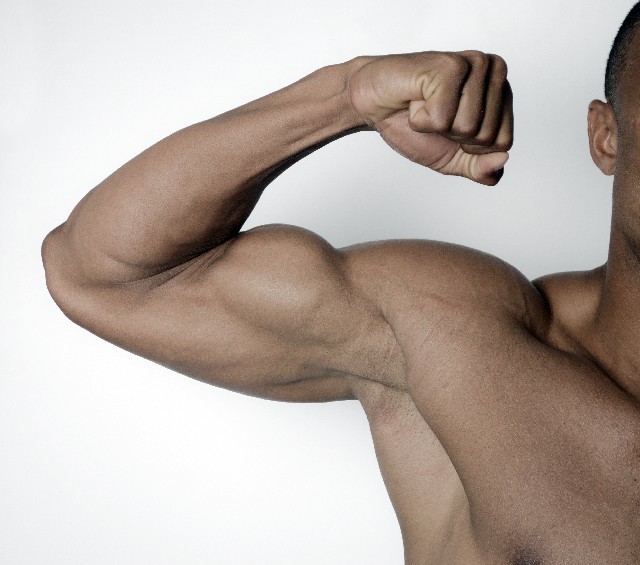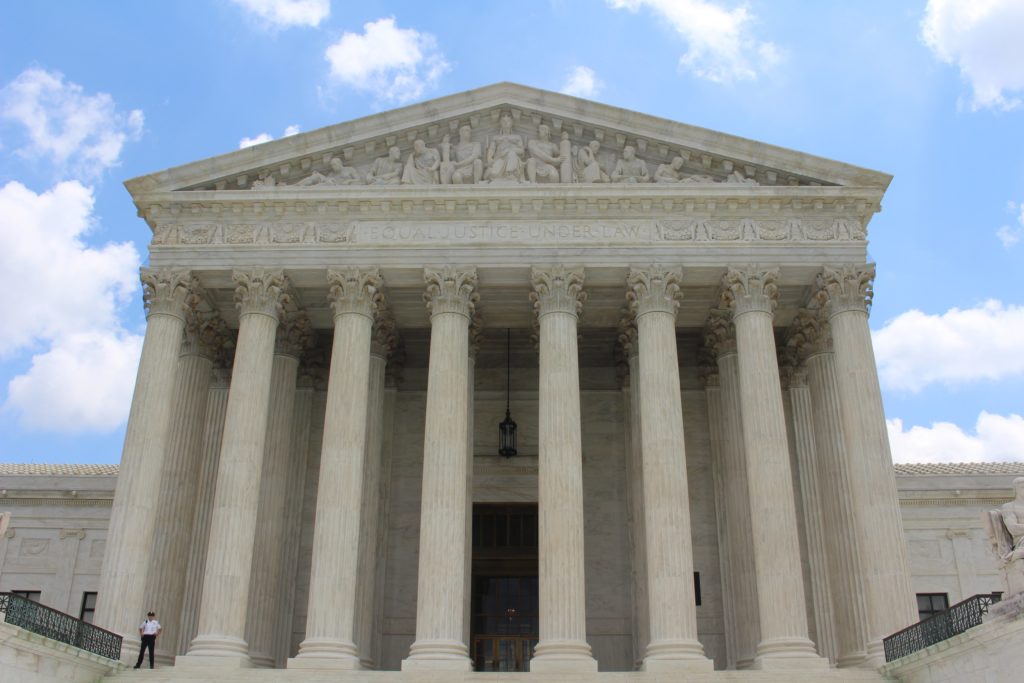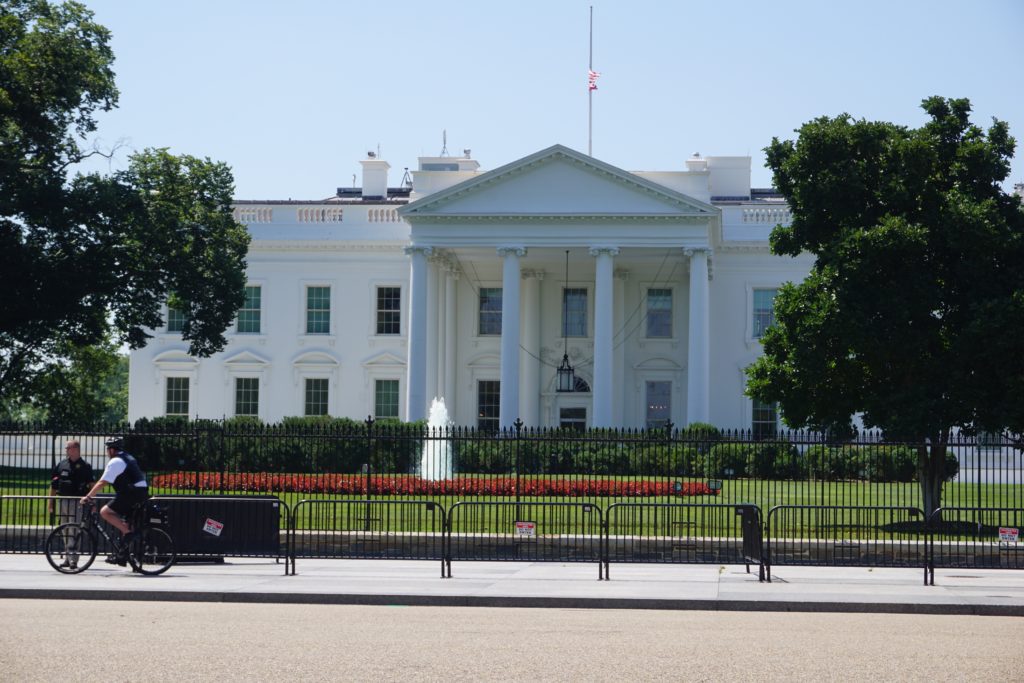この記事は次の言語でも読めます:日本語
The U.S. Equal Employment Opportunity Commission (EEOC) has 53 offices across the country, and is responsible for enforcing federal laws that make it illegal to discriminate against a job applicant or an employee because of the person’s race, color, religion, sex, national origin, age (40 or older), disability or genetic information. When you experience discrimination by an employer, you can contact the nearest EEOC office and file a charge (complaint) so that EEOC can investigate the discrimination and, in some cases, sue the employer if the issue cannot be resolved.
EEOC Headquarters is located in Washington DC, and it was an honor to meet Peggy Mastroianni, Legal Counsel.

In 1961, she graduated from Cornell University. There were 2 jobs that the typical female college graduate did at the time: teaching and publishing (really being a secretary). Peggy chose teaching. After a while she married, had a child, and became a housewife. When she had her first baby in 1970, the women’s movement was very active. One day, a friend invited her to a consciousness-raising group where people discussed various issues related to women. One of the members recommended to Peggy that she be independent financially. She decided to go to a law school in New York. In the law school, female students were only about 30 out of 200. After she moved to Atlanta due to her husband’s job, she looked for a legal job but it was not easy. So, she started working at the American Civil Liberties Union for free. At that time, black people were excluded from juries in many parts of Georgia, and Peggy handled some of these cases pro bono. That was her first experience being involved in civil rights.
Peggy said,
“In the US, disability rights are considered as civil rights. I chose to work at EEOC because EEOC is the only place where I can do the job that I really want to do. Employment is a key to everything. It is not just the financial independence, but you can get confidence and find your value.”

While being interviewed, she repeatedly talked about “law with muscle.” She emphasized that laws should be implemented well and have strength (or “muscle”).
“For example, some countries have well-written laws, but they are not being implemented. In the US, if an employer violates the disability discrimination law, both the EEOC and the alleged victim can sue. Therefore, employers pay more attention to the employment discrimination laws. It’s sometimes difficult for an individual to prove discrimination, but EEOC and other government agencies have power to do a detailed investigation of the employer.”

In Japan, we also have many laws to protect rights of people with disabilities. However, there are still many inaccessible places and discrimination exists against people with disabilities in employment in real life.
Culturally Japan is different from US when it comes to enforcement of law. In the US, more people go to a court and sue if they face discrimination. In Japan, fewer people do that because they care more about harmony with others instead of speaking up about their individual rights.

Japan adopted a quota system for employment of people with disabilities. The employment law requires companies with more than 50 employees to hire people with disabilities at least 2% of total employees. U.S. does not require all companies to adopt such quota system, but have a target “goal” for federal contractors to hire people with disabilities at the rate of 7% of total employees.
Peggy said,
“To make private employers hire more people with disabilities, the government should become the model for employment of people with disabilities. Then, the next model should be Federal contractors. Not just for hiring people with disabilities, but for retaining them in the workplace and giving them the same opportunities for promotion. If the government and Federal contractors work with people with disabilities in this way as a model, that can make other employers think “we can hire people with disabilities too.”

EEOC has proposed 12% employment of people with disabilities as a target for Federal agencies. .While I was in Washington DC, I met employees with disabilities in US Department of State, US Department of Labor, and US Department of Health and Human Services. Some of them are even in an executive level. Recently, a clip introducing the first deaf receptionist, Leah Katz-Hernandez, at White House was released and shared by many people:
Let The White House’s First Deaf Receptionist Give You A Tour Of The West Wing
http://www.huffingtonpost.com/entry/leah-katz-hernandez-rotus_us_579fa0cce4b0693164c21f5f
Still we don’t see people with disabilities working in direct customer service in Japan. If the Japanese government hired people with disabilities like the U.S. government does, that would have a good impact on general employers, too.
Also I have found a disabled student, James Dennehy, working as an intern at White House. He doesn’t have arms and is writing by his foot:
https://www.instagram.com/p/BIflRDnj-uZ/
When I heard “Federal contractors = 7%”, I remembered Starbucks (*) where I visited in February. For the new goal, Starbucks has implemented a new employment program to evaluate abilities of applicants with disabilities. I often see the news on SNS that Starbucks partners (=employees) with various kinds of disabilities work professionally in stores and offices. I believe that Federal contractors like Starbucks are having a huge impact on non-Federal contractors.

In the end, Peggy said,
“What people are good at is very different. So, you cannot view people with disabilities as just one group. It is important to find each person’s interests and abilities. Employers should not just place people with disabilities in a safe zone, but should consider jobs where people with disabilities can use their abilities. If one employer starts, other employers get influenced, because employers pay attention to information from each other more than to information from Federal agencies.”
Not many but some companies in Japan already have stopped dividing the hiring process between people with and without disabilities. Also some companies do not limit positions for people with disabilities from the beginning, but decide select the job after hearing the person’s abilities and interests at the interview. If those companies increase, other companies will change their recruitment process to be more inclusive. That can be very powerful and give benefit to both employers and people with disabilities. It is also important that people with disabilities themselves work actively and professionally to prove the value they can create. By increasing those companies and people with disabilities, employment of people with disabilities can be more integrated, resulting in a WIN-WIN situation.
* You can read 4 Starbucks interview reports from here.
https://moonrider7.com/2016/04/11/skills-developed-by-disabilities-are-precious-assets-part-4/
